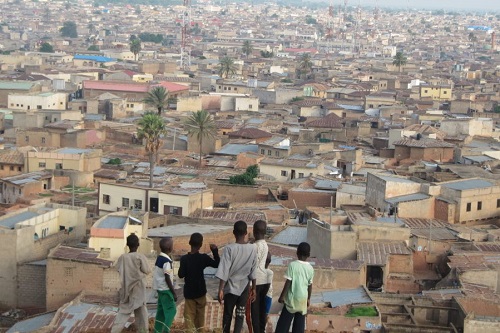GR photo
By
Jerome-Mario Utomi
“…In trying to cure one old disease, we give rise to a hundred new ones; in trying to enjoy the pleasures of sense, we lose in the end even our capacity for enjoyment” – Mahatma K Gandhi
It is common knowledge that among the vast majority of towns/villages and ethnic nationalities in Nigeria, there exists spoken and unspoken directives/bye-laws that support formation of Towns/Community Development Unions, and stipulates compulsory membership for Nigerians whose citizenship flows/rooted or traceable to being indigenes of these communities, towns and ethnic nationalities.
Crucially a laudable move with capacity to promote productive collaboration, but looking at the inter, cross, trans comments, and unpalatable polarization of some communities in their attempt to enforce this directive, it becomes a compelling moral duty to the watching world to objectively take a well ordered look at the practice in order to determine; if it squares up with moral laws, has the capacity to uplift human personalities and in congruence with the nation’s constitutional provisions- considering principally accompanying punishment/consequence for non-compliance.
Conspicuously, invocation/application of the doctrine of ‘no marriage, no burial’- an arrangement that denies non-conformist opportunity to perform/celebrate marriage within the community or be buried in case of their death or that of the relatives until a specified amount is paid as a fine remains but a scandalous example of consequence ‘nonconformists’ are subjected to.
Under this condition, the first question that comes to mind is; must membership of a town’s union/Association be made compulsory, particularly in the face of the provisions of section 40 of the 1999 constitution (as amended) which clearly spell out freedom of association as a fundamental human right?
Indeed, in as much as I sympathize with the awkward condition, some Nigerians have been in the hands of town unions/Development Association proponents, the answer to the above is appreciably in the affirmative and the reason is barefaced.
Relying on the definition/provisions of section 25(1) of the nation’s constitution, a Nigerian citizen is any person whose parents belong to a community indigenous to Nigeria.
From the foregoing, it is deducible that a Nigerian whose citizenship is rooted in, and flows from the aforementioned definition/provision may be required to identify, participate and cooperate with just provisions/programme of the communities in question- as disassociation, in my views could be synonymous with, and likened to rejection of one’s qualifying source of citizenship.
Undoubtedly, this idea is simple.
In the same span, the above reality will not in any appreciable way erase the right of the citizen as enshrined in the constitution to challenge any decision of the community/town considered obnoxious or run contrary to the provision of the nation’s constitution.
Despite this, there is something bracingly more about this practice; aside from the fact that community leaders in their urgent resolve to promote productive collaboration, have ample power under customary arrangement to take steps which are genuinely necessary for security and the wellbeing of the people. One point we must not fail to remember is that ‘we are caught in an inescapable network of mutuality, tied in a single garment of destiny called community. Whatever that affects one directly affects all indirectly- and, injustice anywhere they say is a threat to justice everywhere.’
This need for collaboration becomes even more appreciated when one remembers the uncomfortable position in which some communities have placed no thanks to the excruciating neglect by both the state and the local government’s authorities. And abandonment/ill-treatment with which the so-called affluent indigenes carelessly watch their communities deteriorate as well as observe grinding poverty and starvation drive their people into the ranks of beggars, whose desperate struggle for bread now renders them helpless.
That notwithstanding, when one goes beyond this relatively simple but serious level, one will discover that these human relations are necessary but complex and riddled with inherent challenges that have no single answer- a real situation that calls for re-questioning of the so-called settled answers/necessities of community development associations as well as provides answers to some unsettled questions confronting the society.
Taking this step is important because ‘if men are to be precluded from offering their sentiment on a matter which may involve the most serious and alarming consequences that can invite the consideration of mankind, reason is of no use to us; the freedom of speech may be taken away, and dumb and silent we may be led, like sheep to the slaughter.’
Admittedly, it is not only our patriotic duty to provide care for our communities and towns; in fact, it is our moral duty at the most fundamental level.
But, from what we have seen so far, most of the town unions/associations instead of advocating for the abolition of toxic laws in the community, promote ‘technical rationalities’- that is rationality without morality while forgetting that what is crucial about a vision is not its originality but how well it serves the interest of the people.
Openly, we have in case after case seen some towns/communities of the organizations degenerate into costly confusion and the entire communities come to grief because the proponents of community associations presented sloppy and misaligned decisions and insisted that everyone must share in their definitions of such vision.
This and other sordid stories have presented these not as a vehicle for positive change but a direct opposite, thus becoming a reality that the people they are supposed to protect now worry about.
But so far, there is no bizarre or troubling manifestation of ills associated with town unions than its act of visiting the sin of the child on the innocent parents coupled with its membership drive without passionate consideration of the socioeconomic capacity of the people in question.
Markedly, the proponents need to remember that getting the people to believe or commit to any association or union chiefly depends on the creditability and track-records of the leaders, their vision/content of their message, reputation and the constituency between their words and deeds.
While it will be highly rewarding in my objective view if individuals/groups that are uncomfortable with membership by compulsion seek further interpretation of the law as it relates to this issue in a court of competent jurisdiction, pro-community/union advocates on the other hands, in the interest of peaceful coexistence must consciously preach the importance of community and what it means to care for each other. They should be modest in enforcement and refrain from self-help.
Above all, a boycott by the entire town/community of activities/events organized by defaulters may be considered more civil and fruitful than being confrontational.
Jerome-Mario Utomi
Jerome-Mario is a Social Entrepreneur and an alumnus, School of media and communication, Pan Atlantic University, Lagos, Nigeria.



No Comments Yet!
You can be first to comment this post!